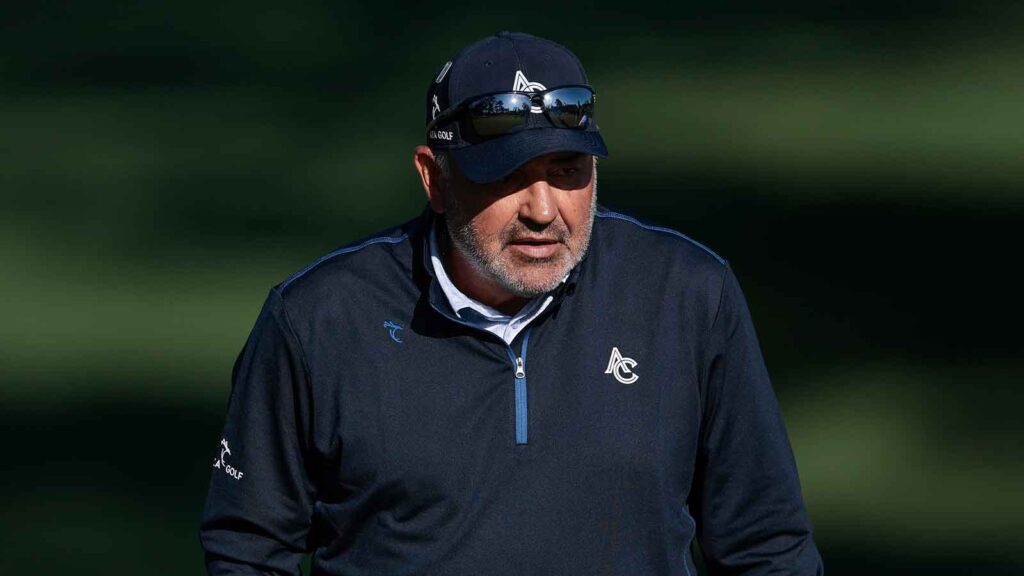One of the most notable Masters moment was Angel Cabrera’s return to Augusta National in 2025. The 55-year-old golfer was preparing for his 21st Masters start, his first since 2019. Cabrera, known for his 2009 Masters win, looked different than before, with gray hair, a wider build, and a swing that lacked some of its former power. Despite this, Cabrera proved his skills with a recent win at a PGA Tour Champions event in South Florida. This victory was significant as it came after his release from an Argentine prison in March 2023, where he served time for various charges, including domestic violence allegations.
While preparing for the Masters, Cabrera reflected on his time in prison, where he practiced his swing with a broom handle and read golf magazines to stay connected to the game. He expressed missing the camaraderie of the golfing community, a sentiment echoed by his interactions with fellow players at Augusta National. However, not everyone welcomed Cabrera back with open arms. Some critics questioned his participation in the prestigious tournament, citing his past actions and calling for a reevaluation of his place in the field.
The controversy surrounding Cabrera’s return to the Masters raised questions about second chances, redemption, and the role of prestigious golf clubs in determining a player’s eligibility. Some argued that Cabrera had paid his dues and deserved a chance to redeem himself both in life and in golf. Others questioned whether Augusta National had the authority to judge a player’s character and determine their suitability for the tournament field. These conflicting opinions created a tense atmosphere as Cabrera prepared to compete in the tournament.
As Cabrera faced scrutiny from the press and public, he maintained a sense of humility and respect for differing opinions. When asked about his presence at the Masters, Cabrera acknowledged the diversity of perspectives on his return and emphasized his past accomplishments in the tournament. Meanwhile, Augusta National chairman Fred Ridley faced questions about the club’s decision to allow Cabrera to compete, maintaining a measured response to inquiries about the controversial player.
Despite the controversy surrounding his participation, Cabrera embraced the opportunity to reconnect with friends and peers at the Masters. At the Champions Dinner, he enjoyed the camaraderie of fellow golfers, sharing stories and laughs with familiar faces. While reflecting on his past regrets, Cabrera emphasized the importance of learning from mistakes and looking towards the future. His presence at the Masters served as a reminder of the complexities of redemption and forgiveness in the world of professional golf.
As Cabrera’s story unfolded at the Masters, it sparked discussions about second chances, redemption, and the evolving standards of the golfing community. The controversy surrounding his return highlighted the challenges of balancing personal redemption with public scrutiny and the responsibilities of prestigious golf clubs in policing player behavior. Ultimately, Cabrera’s journey served as a reminder of the power of forgiveness, growth, and resilience in the face of adversity in the world of professional sports.


